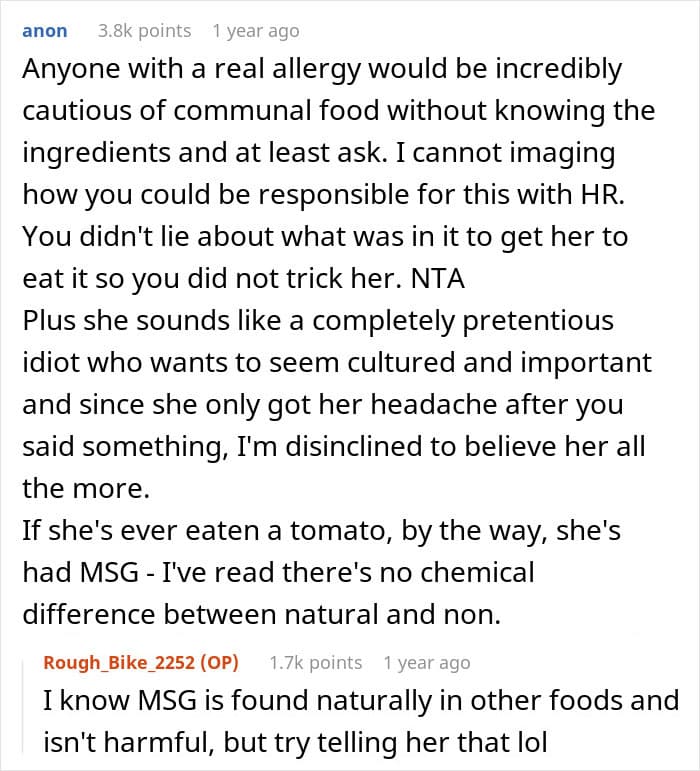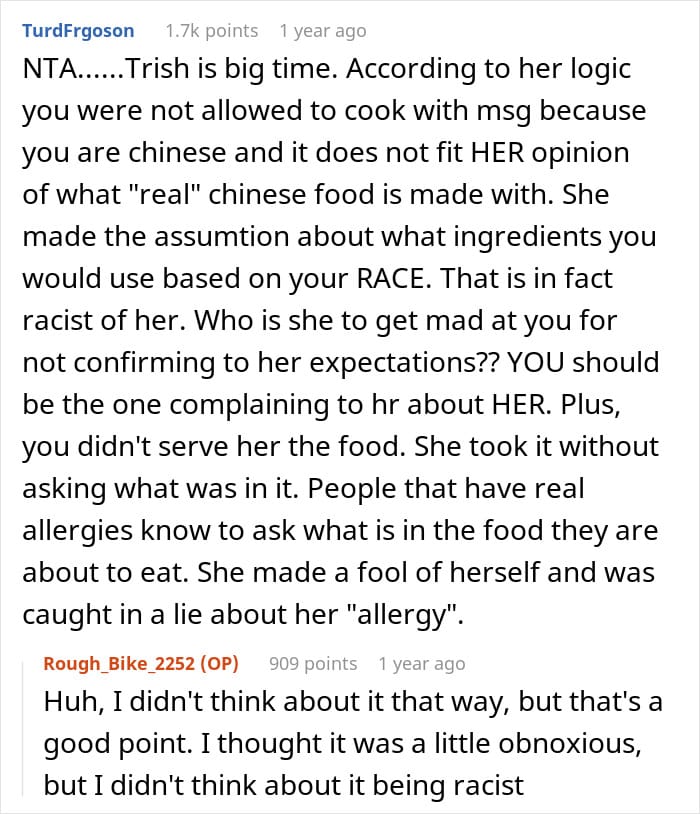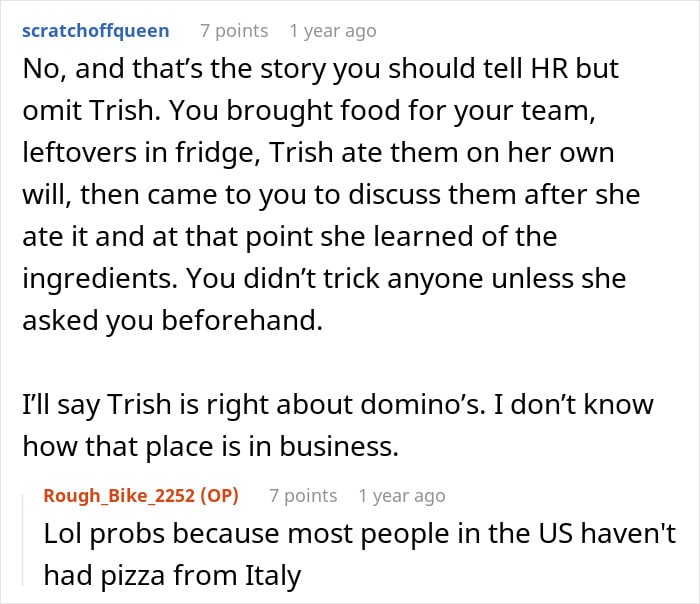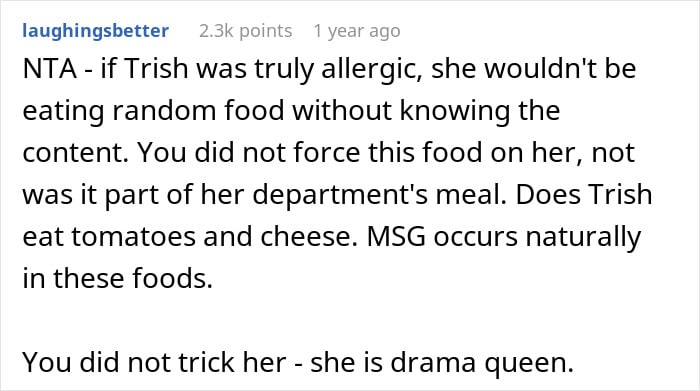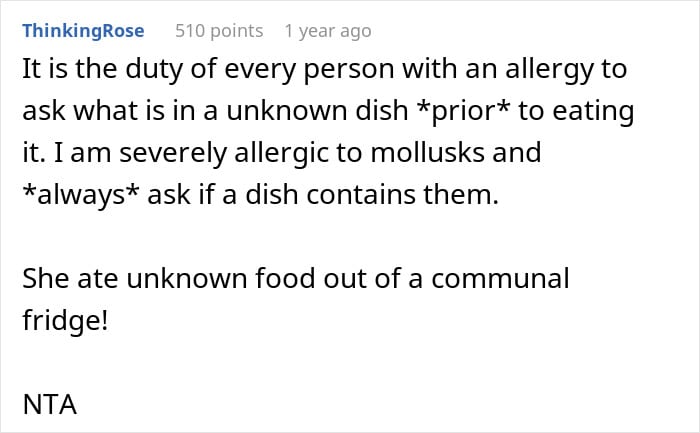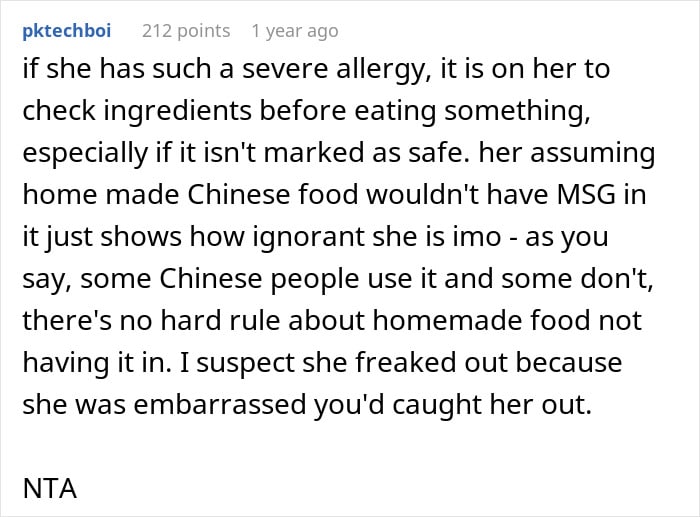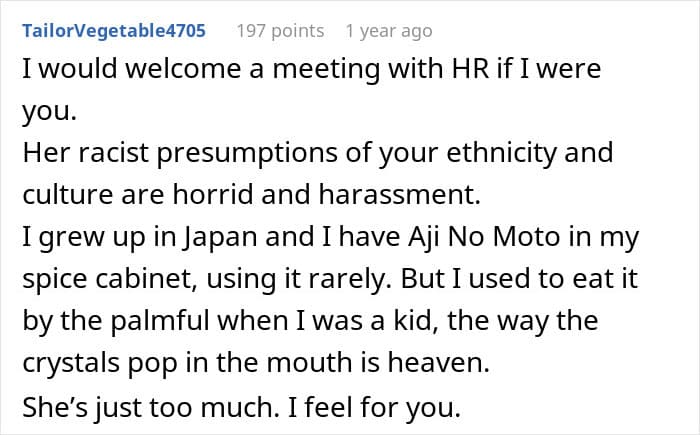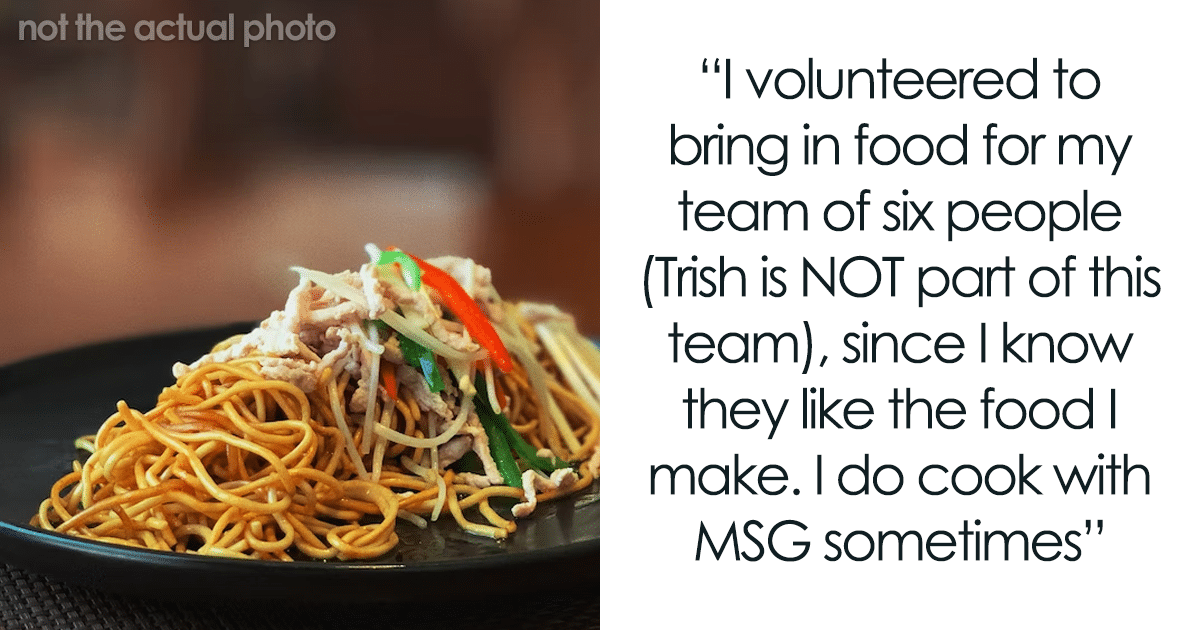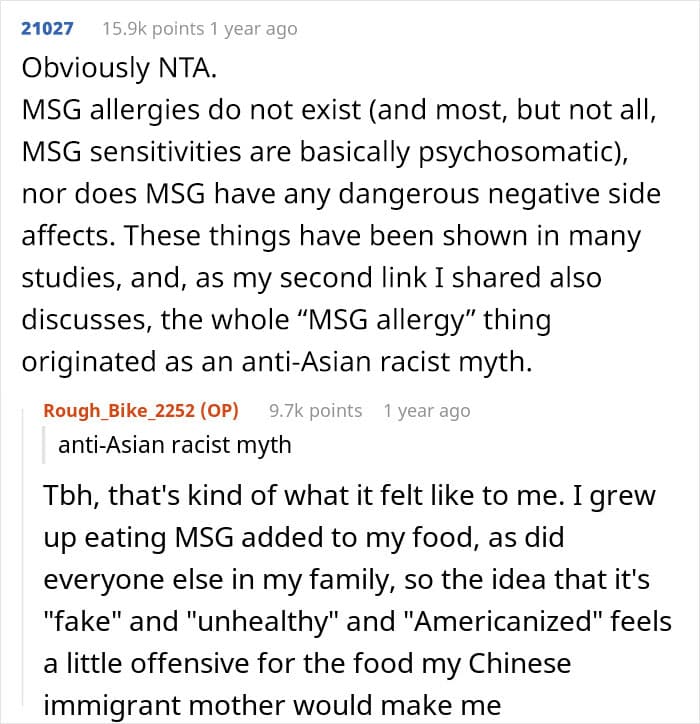Salty. Sweet. Sour. Scrumptious. MSG There are almost as many ways to describe the cuisine as there are different palates. Everyone has their own preferences, yet some people take food a little more seriously than others. A connoisseur. The top. Or simply arrogant hobbyists who turn a fun activity into a competition.
One such foodie discovered some food in the office fridge, which led to an incident that occurred quite some time ago. She walked over and gushed about how wonderful it was that there was no MSG present in order to congratulate the chef. She had no idea that she was about to receive a surprise.
User u/Rough Bike 2252 on Reddit first posted the story. who inquired as to whether they were at fault for “tricking” the coworker. Let’s investigate.
There are varying views on the seasoning MSG: some people adore it, others can’t stomach it, and some people are sensitive to it.

One person who claimed to be allergic to MSG was shocked to learn that the lunch she discovered in the office refrigerator contained that particular flavor enhancer.
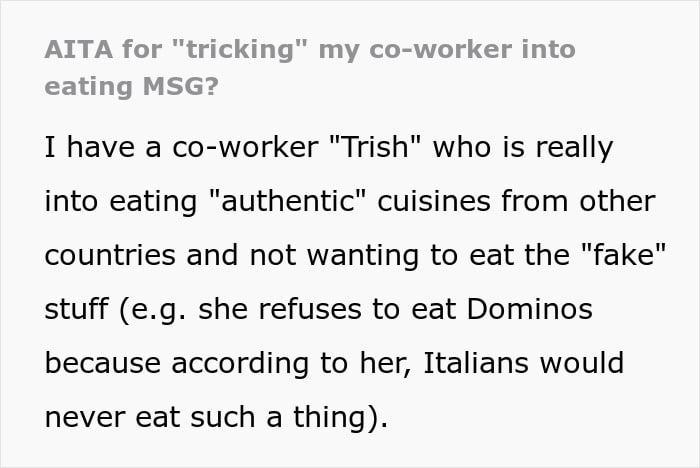
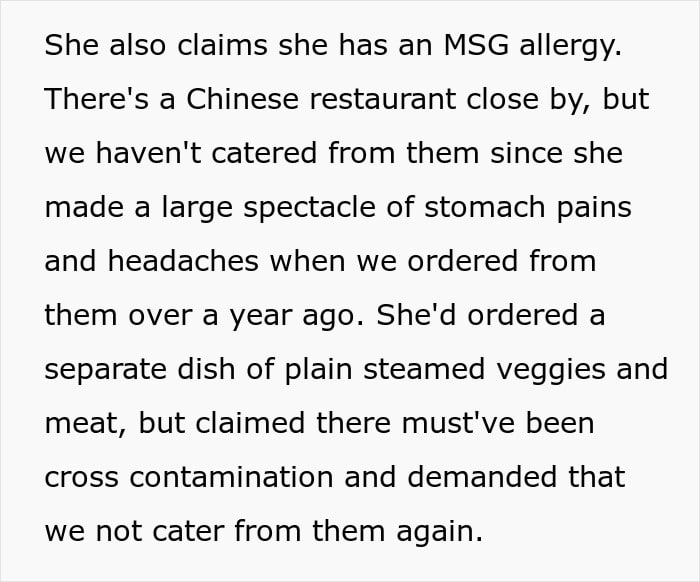
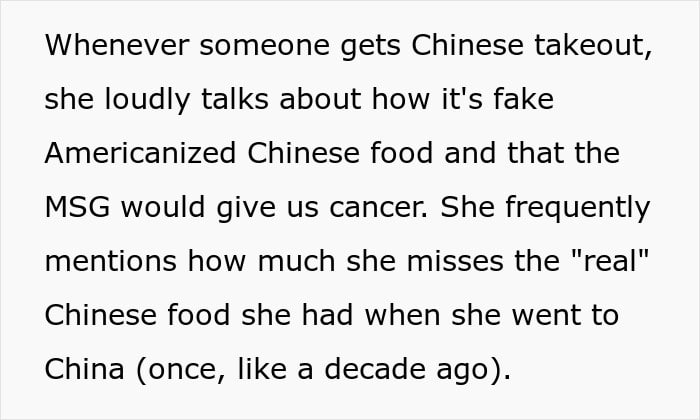
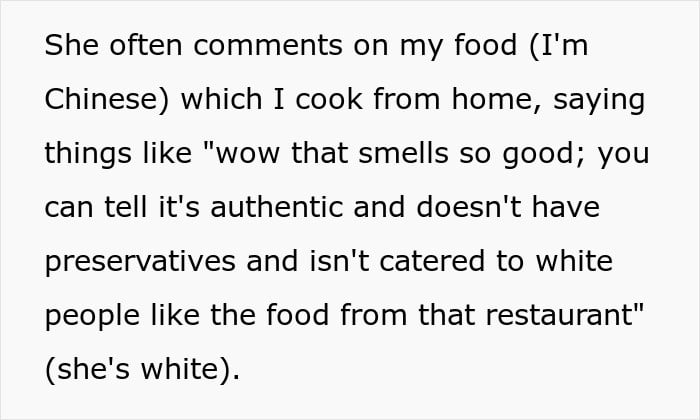
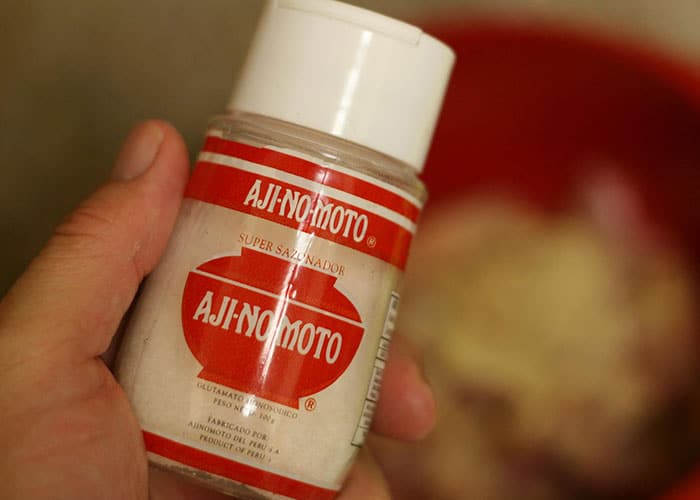
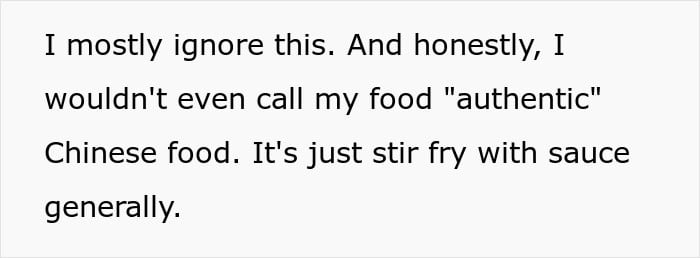
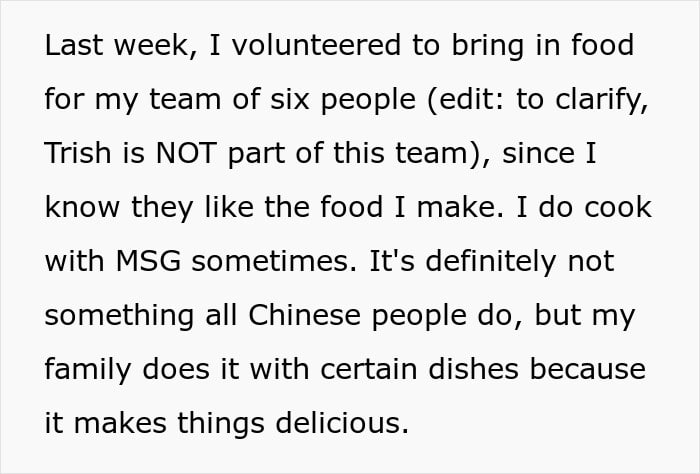
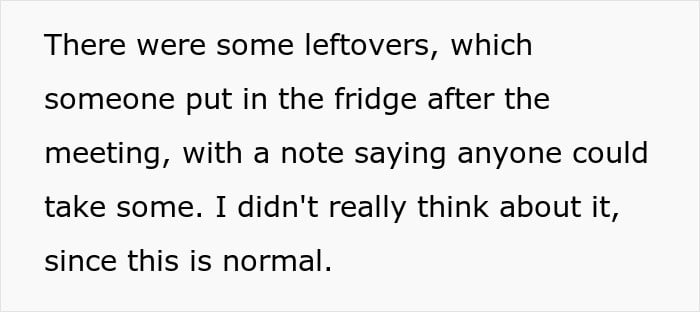
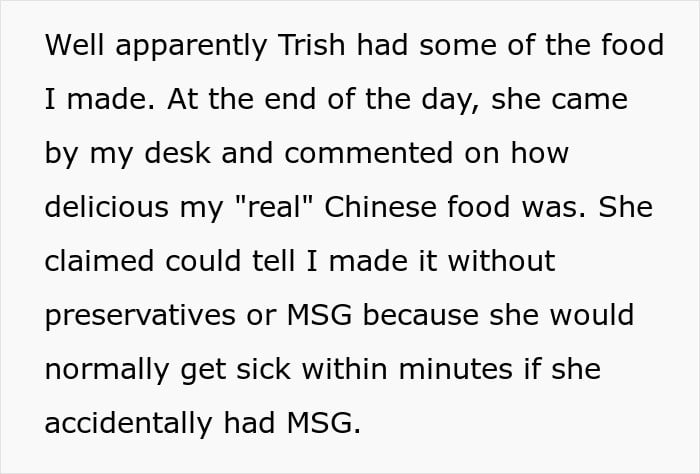

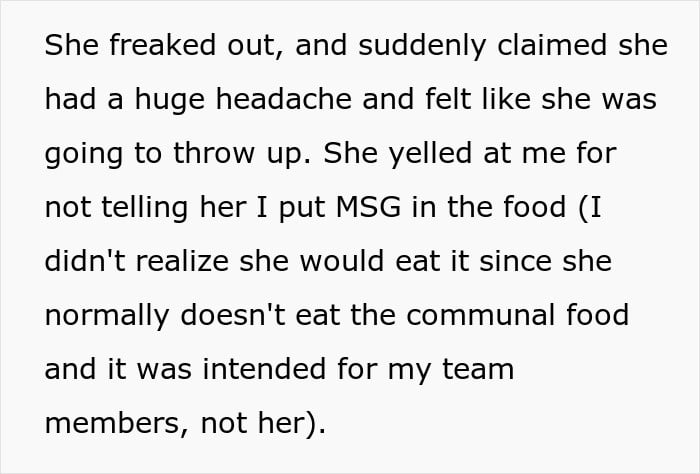
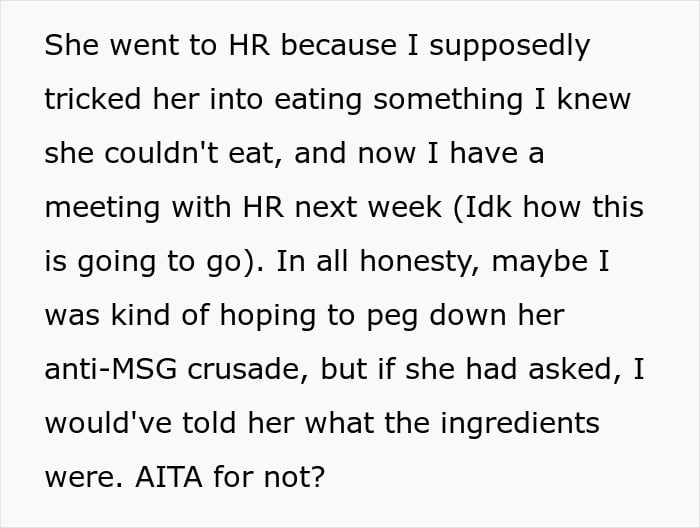
She was not a member of the team that her Chinese coworker had brought in food for, so she ignored her disgust with the seasoning.
The three letters MSG have generated a lot of buzz in the food world. When the abbreviation is broken down, monosodium glutamate, a sodium salt of glutamic acid, is what remains. It is frequently used in cooking to increase the umami, or savory, flavor, particularly in sauces, broths, and soups. It is referred to as E621 in the food business.
Some of you may have first heard about it from Uncle Roger when he asserts that “MSG is the king of flavor” in one of his comedies. Use MSG if you’re sad in life. Use MSG if you’re pleased in life. Add MSG to everything; it will improve the flavor. Yet, the taste enhancer has received a lot of criticism over the years, particularly with regard to health.
Nonetheless, medical professionals know that 1% of the general population has a greater sensitivity to MSG than others.
When Chinese American physician Robert Ho Man Kwok submitted a letter to the New England Journal of Medicine in the 1960s, stating that he became ill after eating Chinese food, MSG gained a poor image. He thought that either alcohol, sodium, or MSG consumption could have caused his symptoms.
This produced a tonne of false information regarding MSG, which was probably a result of prejudices against Chinese immigrants and their food that were already in place at the time.
However, modern health authorities like the Joint FAO/WHO Expert Committee on Food Additives (JECFA), the Food and Drug Administration (FDA), and the European Food Safety Association (EFSA) generally acknowledge MSG to be safe, despite the fact that numerous studies later supported the additive’s negative reputation and claimed that it was highly toxic.
According to research, umami ingredients can even reduce a person’s urge to salt meals, as stated on Healthline. In fact, according to some studies, substituting MSG for some salt can help consumers consume 3% less sodium while maintaining flavor. Having stated that, some persons may experience discomfort following MSG consumption.
Because of this, there was a lot of confusion, and the person was unsure of their moral standing after allegedly “tricking” the woman into eating MSG.
However, a sensitivity to the flavor enhancer has been documented, resulting in bloating, diarrhea, headaches, and abdominal pain, similar to what the woman in the story described. According to NY Allergy & Sinus Centers, the symptoms related to MSG do not involve the immune system, therefore it cannot be called a true allergy.
Interesting fact: Less than 1% of the general population is thought to be sensitive to MSG.
However, if you are aware that a specific food is likely to have an adverse reaction, you may want to avoid eating anything that is still in the office refrigerator without first checking to see if it contains the food you are attempting to avoid. Stop spinning the food roulette wheel right now!
Most of the internet community sided with the coworker, even arguing whether an MSG allergy even existed in the first place.
